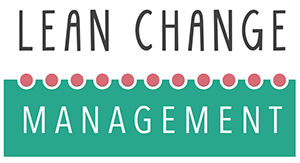Change Management
What is Agile Change Management?
The management of change (Change Management) can be defined as the sum of all the measures we take, both individually and collectively, to move from a current state (As Is) to a desired future state that will predictably be better (To Be).
Darwin said: “It is not the strongest species that survive, nor the most intelligent, but the most responsive to change.” This is true for all species, and also for businesses as well. Properly managing change and the impact that change has on normal business operations is a key element in the evolution of all organizations. And, in an environment of uncertainty, rapid technology development, and seemingly never ending crisis, the challenge of adapting to change is critical to overcome if you want to survive.
Change is considered successful to the extent that people understand it and incorporate it into their new daily lives, which is why the focus of change management is on people. To lead change effectively, a combination of interpersonal skills, such as empathy and communication, the ability to influence, and the insight into systemic view of an organization, are necessary. Understanding that isolated solutions cannot be applied and that everything is connected is a fundamental.
Why is Agile Change Management important?
Within the VUCA world in which we live, adaptability (the ability to react to changes) is paramount. We must be able to adapt quickly and efficiently to new scenarios and create new opportunities in environments with high uncertainty. These are the opportunities that an organization can take advantage of to gain significant competitive advantages.
For this reason, the Change Management competence, as it has been traditionally called (although perhaps it would be more appropriate to call it change leadership), is now a core competence that must be a central focus in people and in organizations if they want to successfully face the inevitable volatility and uncertainty.
Properly managing a change is directly related to how quickly we learn from it. The concepts of change and learning will always go hand in hand. Those who are more open to learning new things and letting go of the way things have always been done will be more prepared for change. Learning to learn, being open to learning, and creating a system in which learning can emerge is a basic obligation to allow the adaptability of organizations. Especially in times of uncertainty, the best investment of time we can make is to learn.
Change Management Courses
Get Certified in Agile Change Management (and Change Management)
Netmind offers certifications in Change Management through two partners: APMG® and Lean Change Management.

We are an approved training provider for APMG’s Change Management Foundation, Change Management Practitioner, and Agile Change Agent certifications.

We are an approved training provider for Lean Change Management’s Lean Change Agent certification.